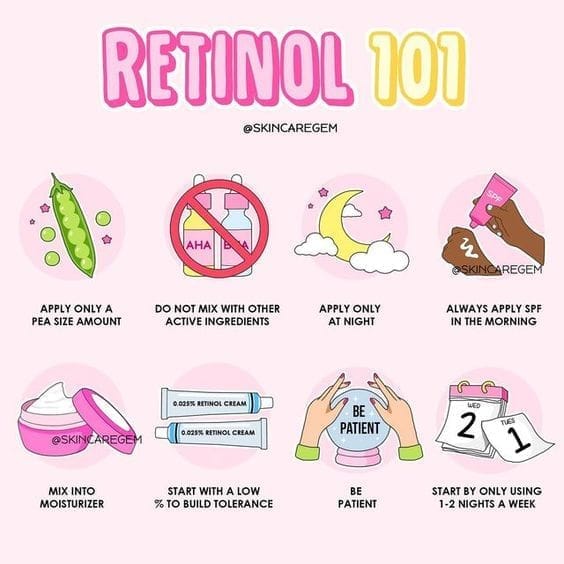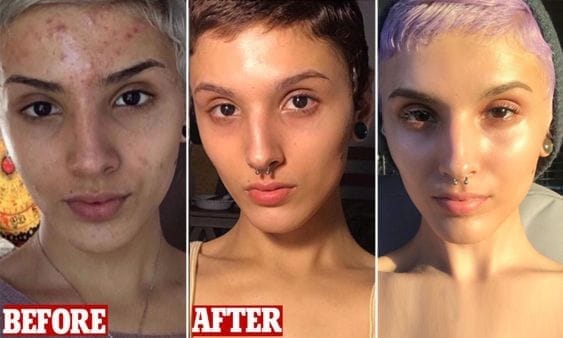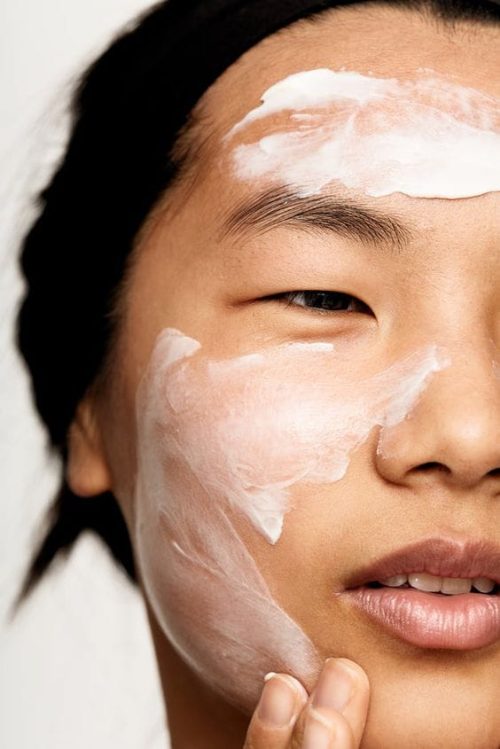Retinol is a type of retinoid, or vitamin A derivative. It’s most commonly used to treat acne and wrinkles but also helps with hyperpigmentation and sun damage. There are different strengths of retinol available over the counter or by prescription so it’s important you choose the right concentration for your skin.
What is Retinol Serum?

 4.7
4.7
Would you like to receive information about the operations from Vanity Doctors?
As Vanity, we can give you information about the operation you are considering.
Ask the DoctorRetinol serum (also known as vitamin A) is a derivative of the vitamin A family, which includes retinoids and carotenoids. In order to understand how a product containing retinol works, it’s essential to know that there are two types of retinol; synthetic and natural. Synthetic forms of retinol are created in laboratories while natural forms come from plants such as carrots or sweet potatoes.
The term “dermatologist-recommended” implies that your doctor has prescribed this product due to his or her recommendation after examining your skin condition and determining what might work best for you.
How Much Retinol Serum Use?

Retinol is available in over-the-counter and prescription products. The most common retinol product used by consumers is retinol cream, which may be applied to your face once or twice a day. Your doctor can prescribe a stronger strength of topical retinoid depending on the severity of your acne and skin condition.
Retinol has been shown to help with acne, reduce fine lines and wrinkles, improve overall skin texture (including dark spots), reduce pore size, brighten dullness in mature skin, and stimulate collagen production.
What does retinol do to your skin?
Retinol serum, or retinoic acid, is a type of vitamin A that has been shown to have many benefits for the skin. Retinol increases cell turnover, which means that it helps to shed dead skin cells and build new ones. It also stimulates collagen production in your dermis, which makes your skin appear firmer and younger.
Can I use retinol every day?
The answer depends on your skin type. For dry skin, you can use retinol every other day. For oily skin, you can use retinol every night. For normal skin, you can use retinol every day.
Retinol Benefits for Skin

One of the Retinol Benefits for Skin is it increases the rate of cell turnover and stimulates collagen production, making skin look firmer and younger. Retinol is a form of vitamin A that’s used to reduce fine lines and wrinkles, improve skin texture (smoothness), reduce hyperpigmentation (sun spots), and brighten dark areas of the skin.
In addition to improving skin tone, retinol also helps with acne by unclogging pores which can lead to additional breakouts if not treated properly.
Benefits of Retinol for Acne
Retinol is used to treat acne, wrinkles and improve overall skin tone. The usage of Retinol for skin increases the rate of cell turnover and stimulates collagen production. When applied directly on the skin, retinoids can cause mild irritation or redness. The use of a topical retinoid such as tretinoin (Retin-A) can greatly increase sun sensitivity so it’s best to use sunscreen during treatment with these products.
If you are pregnant or breastfeeding, you should avoid using retinoids because they have been shown to cause birth defects in animal studies and may also be harmful to breastfed babies if absorbed by the mother
Retinoid Benefits
The active ingredient in retinol is retinoic acid, which can be irritating to the skin. It is recommended to go through a 2–4-week adjustment period when first using a retinol product. Here are some retinoid benefits:
- Retinol products may be ideal if you are looking for anti-aging benefits or have sensitive skin.
- Retinols work by stimulating collagen production and cell turnover.
- This makes them great for improving the appearance of fine lines and wrinkles, reducing acne breakouts and redness, evening out your complexion, improving clarity and texture, and reducing hyperpigmentation (dark spots).
Retinol Body Wash Benefits
If you’ve been thinking about giving retinol a try, it’s essential to know that there are many different strengths and types of retinols available over the counter. You can use them for acne, wrinkles, and hyperpigmentation (discoloration). But these products may be too strong for very sensitive skin.
Pregnant women and nursing mothers should also avoid all over-the-counter retinol, as there is some research that suggests they might cause harm to developing fetuses or newborns.
Retinol Stimulates Collagen Production
Retinol is used in over-the-counter and prescription products to stimulate collagen production. It also helps exfoliate dead skin cells, which makes your face look younger by revealing smoother and more radiant skin. The term “retinoid” doesn’t refer to one specific ingredient; instead, it refers to a group of compounds that are all derived from vitamin A and have similar effects on your skin.
Retinol Serum Benefits For Skin
Retinol is known to help with acne and other skin issues, reduce fine lines and wrinkles, and improve overall skin texture.
- Acne: Retinol is a great option for acne-prone skin because it helps clear up pores. It also contains anti-inflammatory properties that soothe irritated skin. While some people may experience irritation from retinol products (it’s typically caused by overuse), it’s generally safe to use them if you’re already treating your acne with other products.
- Wrinkles: Retinoids can help reduce the appearance of wrinkles on your face by increasing collagen production in your skin. In addition, retinoids are known to promote cell turnover (which reduces pigmentation) and smooth fine lines by exfoliating the outer layer of skin (the stratum corneum). These effects will last even after you stop using retains like tretinoin or adapalene! It’s important to note that many studies on how exactly retinols work has been done on animals—and not humans—so more research needs to be conducted before we know all their benefits for certain.
Benefits Of Using Retinol In Different Concentration
There are different strengths of retinol, so it’s important you choose the right concentration for your skin. For instance, if you have very sensitive skin or are new to using a retinol product, an over-the-counter option is best. Ask a dermatologist to help guide you through the selection process if possible. If they don’t carry any or have some samples available, you can try them out first before purchasing anything online.
Retinol Side Effects On Skin
The potential to reduce hyperpigmentation is one of the Retinol Side Effects On Skin, particularly if you have sensitive skin. You should always use a retinoid with a moisturizer to prevent dryness and irritation. Retinoids can be used for acne, too, but they may not be as effective as other acne treatments like benzoyl peroxide or salicylic acid.
Retinoids are also effective against wrinkles because they stimulate collagen production in the skin, which helps keep fine lines at bay (and prevents them from getting worse).
Retinoids can be irritating for sensitive skin types
If you have sensitive skin, it’s important to note that retinoids can be irritating for some. It’s recommended that you use them in conjunction with a gentle cleanser and moisturizer that are labeled as “non-comedogenic,” meaning they don’t clog pores or cause acne breakouts. Additionally, if you use retinoids at home, make sure you speak with a dermatologist first so they can help you determine whether or not this form of vitamin A is right for you (and give some advice about how much product is too much).
Vanity Cosmetic Surgery Hospital for Retinoid
If you’re looking for a high-quality retinoid, the best place is Vanity Cosmetic Surgery Hospital. You’ll find the latest in retinoids and other anti-aging treatments here! Get in touch for more information. The key is to start slowly and build up strength over time. If you can’t find an over-the-counter product that works for you, talk to our plastic expert about prescription retinoids!





